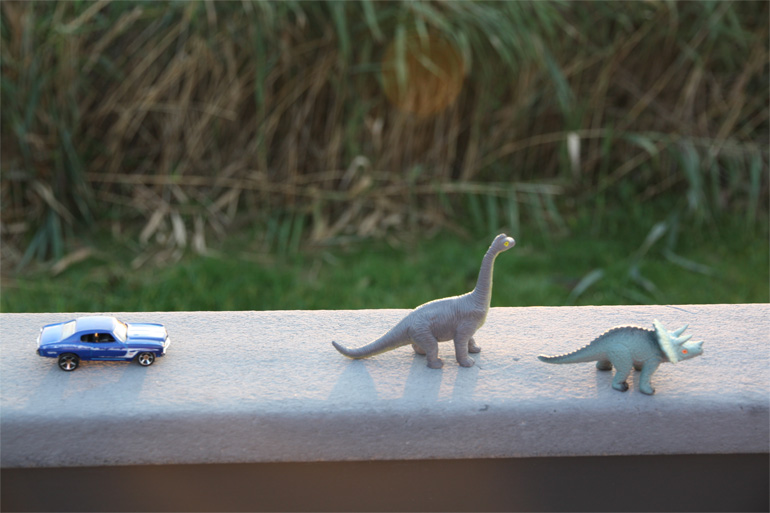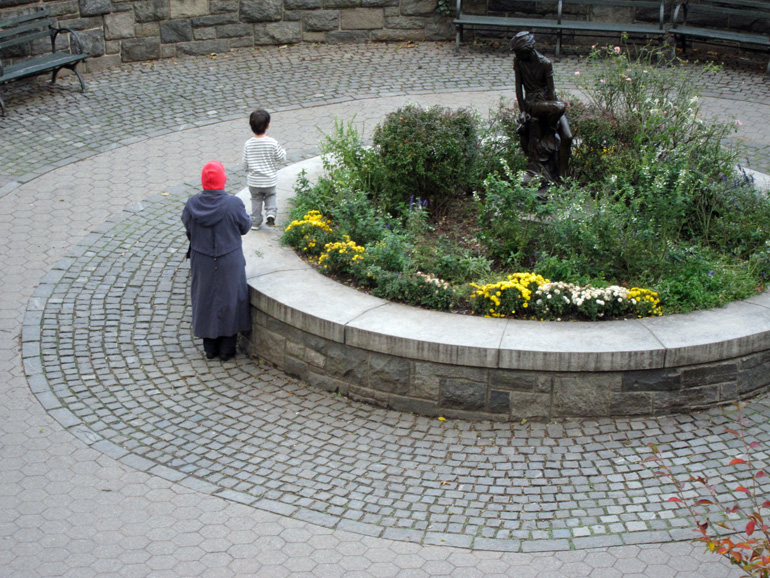Gotham Diary:
Beauties
30 November 2012
Friday, November 30th, 2012
In the afternoon, I went to see Anna Karenina, Joe Wright’s film of Tom Stoppard’s dramatization of Leo Tolstoy’s novel. The Stoppard part is the most important, although Wright is to be praised for capturing the circus magic that makes Stoppard’s bigger plays, such as Jumpers, so thrilling. Stoppard doesn’t stop at writing a screenplay, with lines for actors to deliver in front of various deployments of the camera. He creates a contraption, rooted in vaudeville, of sliding screens and stylized gestures, that deconstructs and recomposes a dramatic problem in terms of spectacular ballet. It goes without saying that, what with Stoppard’s being the presiding genius, this ballet is anything but mute. Just as important, it is neither precious nor hermetic: Stoppard has no intention of bewildering or boring his audience. His play is a thinking machine (a machine in the antique sense — more ingenious toy than mechanized tool) that invites you to ponder Anna Karenina’s story and the world in which it was shaped. We all know how Anna’s story ends, but this rather grim detail, while it is stylistically foreshadowed, does not haunt the telling. Anna Karenina may be light-hearted or it may be heartless, according to your taste, but it is certainly densely-headed. Stoppard wants you to deal with what’s going on, not to worry about what’s going to happen. He steers you away from Anna’s doom, helped immensely by Keira Knightley’s furiously vital performance. When the time comes, the Anna who throws herself beneath the train carriage is no poor creature. Her face has just brightened with a slight, faint smile, for she has grasped a solution to her problem.
Ms Knightley’s performance plays out over a counterpoint of glittering high life in which Society is presented as gorgeous and graceful and caged. We can expect someone to write something brilliant about the way Stoppard and Wright have hit upon using the backstage machinery and lumber of a conventional theatre to signify confinement — not to mention doing the same with the boxes and stalls out in front of the proscenium. All but two of Tolstoy’s characters are content to live in this virtual prison; they have worked out deals that keep them in silks and soufflés in exchange for the observance of a more or less rigid decorum. The two exceptions are Levin (a very keen Domhnall Gleeson), who understands the cage to be an alien import from the West, foreign to true Russian values (about which, however, he is visionary when he is not sentimental: don’t try this at home), and Anna, who ceases to be able to live in the cage when she is surprised by a romantic passion that is, certainly in this production, intensely erotic. When Levin and Anna are happy, the camera moves out of the theatre set and into the countryside. (Wright is to be applauded, again, for exterior shots that harmonize with the rest of the movie; they could so easily jar.) The difference is that Levin’s happiness is built on a foundation of property and masculinity — men are allowed to leave the cage from time to time, to philander or to shoot birds — while Anna’s has no foundation at all. Hers also lies beyond a range of burned bridges: when her life with Vronsky fails (Vronsky is played by the protean, here almost beautiful Aaron Taylor-Johnson with an authority beyond his tender years), she can’t go back to any other. You might say that the burned bridges are the broken bars of the cage: the prison life is supportable only if you’ve not, having stepped outside of it, considered never stepping back in. By showing us a bedroom that is little more than a gigantic crypt with an open coffin, the filmmakers leave no doubt in our minds that Anna really cannot go on living with Karenin. (Jude Law plays Karenin with what at first seems to be an august reserve, but as the camera continues to play over his face, you are reminded of his ghoulish performance in The Road to Perdition.) But there’s more to it than that, of course. Anna besots herself with the notion that Vronsky has become her true husband. This delusion overlooks the fact that Vronsky is going to have to become someone else’s husband. The only true husbands are the actual, legal husbands. This is, after all, the ancien régime: property rights trump personal claims.
All of this is beautifully illuminated by what I have called Stoppard’s contraption. Far from being a sob story about a beautiful, passionate lady who is crushed by a repressive society, this Anna Karenina is above all an entertainment. It is about the way people live, not die. It may be the most beautiful movie that I’ve ever seen; that’s certainly how I felt while I was watching it. Sidi Larbi Cherkaoui, who choreographed the dances (and perhaps the entire film) and costume designer Jacqueline Durran both deserve Academy Awards.
***
In the evening, I went to see the George Bellows exhibition at the Museum. I shall have to see it again before venturing to say much about Bellows’s very distinctive impressionism, which manages to be post-impressionist at the same time; all I can say for certain is that his two portraits of “Mrs T,” an elderly society woman in Chicago, are Old Master stunners that would not suffer by hanging next to Sargents or Lawrences. There are many wonderful things — the presence of snow in Blue Snow, the Battery, which could have been painted only by somebody who knew how to put the chill of winter on canvas; the rock pool, lit as from within, at the bottom of the picture of the fisherman at Carmel Bay; the heavy but jolly ladies in their pastel dresses, climbing the park steps in Easter Snow — but I don’t know quite what to make of them, which is another way of saying that this exhibition of Bellows is obliging me to adjust my thoughts about the art of painting. His premature death (of appendicitis) at the age of 42 is deeply regrettable.




















